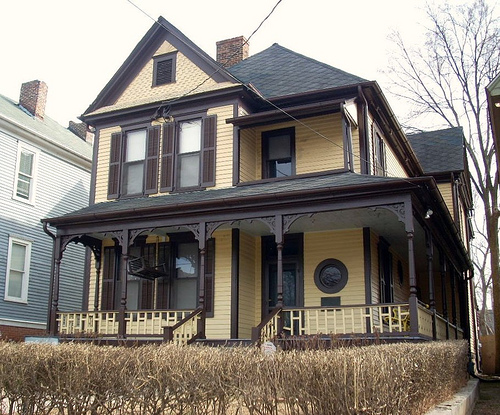Szopka Krakowska inside the Notre Dame Cathedral in Paris, Photo by Maja Trochimczyk
Merry Christmas and a Happy New Year 2016!
The Year 2016 will be much happier for those who will start it by attending PAHA's 73rd Annual Meeting in Atlanta, Georgia. The Meeting will take place on January 7-9, 2016, in association with the Annual Meeting of the American Historical Association, at the downtown Hilton in Atlanta, Georgia (255 Courtland Street NE, Atlanta, GA 30303; T. 404 659 2000).
The attendance at the Meeting's sessions is free of charge. The registration fee for the Annual Awards Banquet is $50.00. Please register for the Conference and the Banquet on PAHA's website.
THURSDAY, JANUARY 7, 2016
PAHA Board Meeting
Thursday, January 7, 2016: 3:30 PM-5:30 PM
Hilton Atlanta, Executive Boardroom
________________________________________
FRIDAY, JANUARY 8, 2016
Session 1. Polish Immigrant Adaptation and Cultural Transition
Friday, January 8, 2016: 8:30 AM-10:00 AM
Hilton Atlanta, Room 209
Chair: Mary Patrice Erdmans, Case Western Reserve University
Papers:
Polish Miners in the Ruhr Area, 1920–30
PienVersteegh, Avans University of Applied Sciences
The Eviction of the Kashube Fisherman of Jones Island, Milwaukee
Anne Gurnack, University of Wisconsin-Parkside
Kashubian pustô noc in America: Comparative Perspective of Death Rites, Poland and Canada
Aleksandra Kurowska-Susdorf, University of Gdańsk
Comment: The Audience
_______________________________________
Session 2. Polish Americans: Family, Home, Career
Friday, January 8, 2016: 10:30 AM-12:00 PM
Hilton Atlanta, Room 209
Chair: Pien Versteegh, Avans University of Applied Sciences
Papers:
Biatek Family: A Case Study in Polish Immigration History
Barbara D. Pulaski, Mount Ida College
Francis S. Wolenski, Cambridge, Massachusetts
Defining Home: The Development of Polish-American Identity in Toledo, Ohio, 1905–25
Rachel Pawlowicz, University of Michigan-Ann Arbor
Three Second-Generation Polish American Women of Success and Their Stories
Joanna Wojdon, University of Wrocław
Comment: The Audience
_______________________________________
Session 3A. Foreigners’ View on the American Civil War
Friday, January 8, 2016: 2:30 PM-4:30 PM
Hilton Atlanta, Room 209
Chair: Dominic A. Pacyga, Columbia College Chicago
Papers:
Polish Participation in the Antislavery Crusade
James Pula, Purdue University North Central
Writing German Lives during the American Civil War: The Letters of German Immigrant Soldiers
Daniel P. Kotzin, Medaille College
The Polish View on the American Conflict: The Civil War from the Perspective of Count Adam De Gurowski
Piotr Derengowski, University of Gdańsk
Comment:Christopher Blackburn, University of Louisiana at Monroe, The Audience
_______________________________________
Session 3B. Émigré Political Activism during the Cold War
Friday, January 8, 2016: 2:30 PM-4:30 PM
Hilton Atlanta, Room 210
Chair: Anna Mazurkiewicz, University of Gdańsk
Papers:
Central European Federalists in the United States during the Cold War Period
SławomiŁukasiewicz, Catholic University of Lublin and the Institute of National Remembrance
Between Neighbors, Between Immigrants: Poles and Ukrainians in the United States during the Cold War, A Few Reflections
Anna Fiń, Pedagogical University of Kraków
Serving the United States and Afghanistan: The Role of the Afghan Americans in the Cold War, 1978–92
John K. Baden, Case Western Reserve University
Comment: The Audience
___________________________________________________
Session 4: Poetry Reading - Slicing the Bread by Maja Trochimczyk
Friday, January 8, 2016: 5:00 PM-6:00 PM
Hilton Atlanta, Room 209
Maja Trochimczyk reads from Slicing the Bread. Children’s Survival Manual in 25 Poems (2014)
Maja Trochimczyk, Moonrise Press
__________________________________________________
Session 4. Polish Immigrant and Polish American Ethnic Women
Saturday, January 9, 2016: 9:00 AM-11:00 AM
Hilton Atlanta, Room 209
Papers:
Warsaw, East London, and Detroit: Ravensbrück Camp Inmates Searching for a Home
Anna Muller, University of Michigan-Dearborn
Women, Immigration, and Ethnicity: A Review of Sociological Studies
Mary Patrice Erdmans, Case Western Reserve University
Forbidden Desires: Women and Transgressive Sexuality in Polish American Fiction
GrażynaKozaczka, Cazenovia College
Comment: The Audience
______________________________________________
Honoring Victor Greene: Immigration and Ethnic History since the 1960s
Saturday, January 9, 2016: 11:30 AM-1:30 PM
Hilton Atlanta, Room 209
Co-Sponsor(s): Immigration and Ethnic History Society
Chair: Anna D. Jaroszyńska-Kirchmann, Eastern Connecticut State University
Comment: James R. Barrett, University of Illinois at Urbana-Champaign; Ronald H. Bayor, Georgia Institute of Technology; Dominic A. Pacyga, Columbia College Chicago; James Pula, Purdue University North Central; Dorothee Schneider, University of Illinois at Urbana-Champaign
_______________________________________________
Session 5. The Reception of Polish Culture in the United States
Saturday, January 9, 2016: 2:30 PM-4:30 PM
Hilton Atlanta, Room 209
Chair: Grażyna Kozaczka, Cazenovia College
Papers:
Digested: Tadeusz Różewicz and the Polish Americans
Maja Dziedzic, University of Gdańsk
Poland, Polish-Americans, and Georgia
John P. Dunn, Valdosta State University
Michał Mydłowski, University of Warsaw
Teaching Resources in the Maintenance and Development of Polish Language and Culture in the United States
Monika Wołoszyn-Domagała, University of ZielonaGóra
Comment: The Audience
________________________________________
SATURDAY, JANUARY 9, 2016
19:00- 21:00 AWARDS BANQUET
The Awards Reception will be held on Saturday, January 9, 2016, starting at 7 p.m., at the historic Mary Mac’s Tea Room (224 Ponce De Leon Ave. NE, Atlanta, GA 30308).
Mary Mac’s Tea Room opened in 1945, today it is the last of sixteen tea rooms that once dotted intown Atlanta in the 1940s. After 65 years, Mary Mac's Tea Room is THE Atlanta culinary landmark, offering made-from-scratch true southern fare, like fried okra, Pot Likker, chicken pot pie, Gulf shrimp, fried green tomatoes, and the best sweet tea, served with genuine southern hospitality.






























.jpg)
